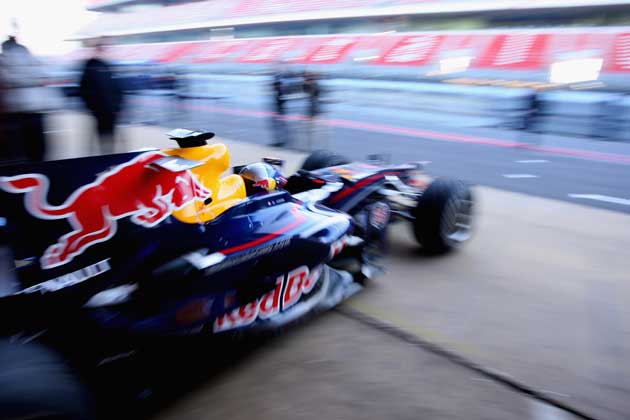Red Bull may be heading for F1 scrapyard with Honda

Formula One is experienced at dealing with shocks. In the past year it has been hit with spying scandals, accusations of race rigging and seen the colourful sex life of Max Mosley, head of F1's governing body, splashed over the media. But that did not prepare F1 for the shock on Friday when it was announced that Honda, one of the best-funded teams, would pull out of the sport if no one came forward to buy them. Like their superstar drivers, F1 team bosses are used to feeling invulnerable but this news burst a bubble and showed them even this industry is not immune to recession.
Car manufacturers have come and gone from F1 in the past. Ford, Peugeot and Porsche all dabbled with it but there is good reason why their departures did not rock the sport as Honda's has done. In 2007, Honda's team spent £147m – and all for an intangible marketing benefit for their owner. Given the current gloomy economy, this is not justifiable and the argument does not just apply to Honda but the remaining nine teams. It leaves them panicking, wondering who will be next to put the brakes on F1.
The most obvious candidates to follow Honda out of F1's door are Japanese rivals Toyota. The Japan Automobile Dealers Association say Japan's carmakers suffered their biggest drop in sales of new cars for 39 years last month. This coincided with Toyota announcing that by March 2009 their net income would be £4bn – a 68 per cent decrease on last year. Their shares have lost 52 per cent of their value over the past year which could leave shareholders demanding they boost profits by ditching costly outgoings – such as the huge F1 expenses.
According to F1's industry monitor Formula Money, F1's team owners invested £1.1bn in the sport in 2008 with Honda leading the pack having given their team £240m. It was followed by Toyota, who spent £205m, and Mercedes, who gave £180m to Lewis Hamilton's McLaren team.
In the past five years, Toyota are believed to have burned through £955m in F1, which puts their involvement at high risk. Toyota said on Friday they are "currently committed to succeeding in Formula One and to reducing costs", but a commitment to remaining in the sport was missing.
Companies which do not have shareholders are equally at risk. The Red Bull drinks business have been F1 team owners since buying out Ford's outfit in 2004 but their latest financial statements show that last year their spending hit top gear. In 2007, total costs at Red Bull Technology, the company which designs and builds cars for Red Bull Racing and sister team Toro Rosso, accelerated 22 per cent to £130.3m – the third-highest amount ever spent on a UK-based F1 team. Red Bull poured in most of this finance, with sponsorship only amounting to £10.25m.
In 2007, Red Bull Technology's staff costs rose by 32.5 per cent on the previous year to £36.1m and they invested £10m in office and workshop equipment. At the end of last month, Red Bull bought out their partner, former F1 driver Gerhard Berger from Toro Rosso, leaving them with two teams under their complete control. Despite this show of strength, Red Bull could be next to pull out of F1.
Despite Red Bull's lavish spending in 2007, they have revealed that they will be cutting back on F1 frills such as their Red Bulletin magazine and even their Formula Una grid girls.
Some commentators have now speculated that Red Bull may have bought back Toro Rosso to offload both teams in one hit. However, the hurdle they would have is the one facing Honda – not many people have a few hundred million pounds to spend on running an F1 team. This may change.
In the wake of Honda's exit, Mosley announced that from 2010 British engineering firm Cosworth will provide F1 teams with an engine option which will cost £1.68m upfront. Teams can still produce their own motors but there is little incentive for doing so since they would not be allowed to make them more powerful than Cosworth's option. Whether this has the desired effect is another matter.
Many claim that regardless of the gloomy economy, car manufacturers will tap into virtually bottomless budgets in a bid to win against their F1 rivals. Last year, for the first time in F1, teams ran with engines frozen to the 2006 specification – one of Mosley's earlier cost-cutting plans. It did not work.
Total costs at Honda, McLaren and Red Bull all increased in 2007 with the drinks company boosting research and development spending by 53 per cent to £25.5m. "What we have been successfully doing is moving money from one area of the team toanother," explained Honda F1's chief executive Nick Fry last year. Now he is paying the price.
Subscribe to Independent Premium to bookmark this article
Want to bookmark your favourite articles and stories to read or reference later? Start your Independent Premium subscription today.

Join our commenting forum
Join thought-provoking conversations, follow other Independent readers and see their replies